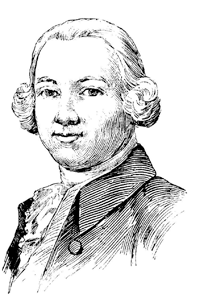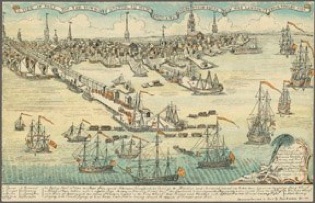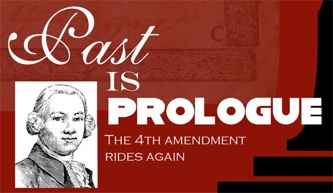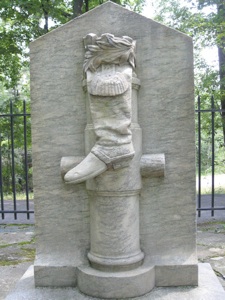Past is Prologue
by
D.H.T. Shippey & Michael Burns
“What’s past is prologue”
William Shakespeare
Protection against unreasonable governmental search and seizure is guaranteed by the 4th of the10 amendments to the Constitution that make up our Bill of Rights. Like all of our constitutionally guaranteed rights, it was written to assure our protection from governmental abuse. Throughout our history, We the People have had to correct the government when it has chosen to ignore those rights and the limitations on its power. It is arguable to claim our country was born out of the action of correcting a government that had overstepped its power. The 4th amendment, like all of the Constitution and Declaration of Independence, can be traced back to struggles that remain relevant despite their origins in the 18th century.
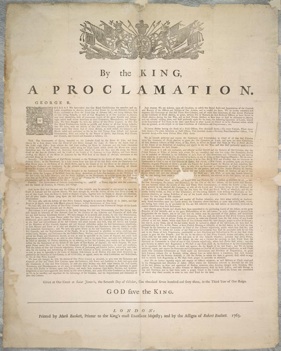
The debate over governmental search and seizure in America began in 1760, fifteen years before the first shots at Lexington and Concord. It all started with the Writs of Assistance. In Boston during this period there was a thriving black market that smuggled and sold goods from business rivals like Holland, France, Spain, or even British goods without paying the customs fees. The Navy used small revenue cutters to board suspected ships at sea, while on land customs officers were similarly empowered. To make this task easier, the Vice Admiralty court issued the Writs of Assistance. These Writs were, in effect, blank search warrants giving the officials permission to harass anyone and search anybody’s home, business or papers without showing that they had any cause to do so. Now the problem with this practice was that it was open to abuse and corruption. Without needing to show just cause, officials could harass people, invade their privacy, and confiscate or destroy their property in pursuit of contraband. Making the temptation to abuse their power even greater, the enforcing customs officer could keep for himself 1/3 of the value of any “contraband” he recovered. The people of Boston--especially the Merchants of Boston--were outraged by the over eager Customs Surveyor Charles Paxton.
Opposing this abusive practice was Boston lawyer James Otis. Defending the right to privacy, he argued that the power to issue general search warrants placed
"The liberty of every man in the hands of every petty officer."


